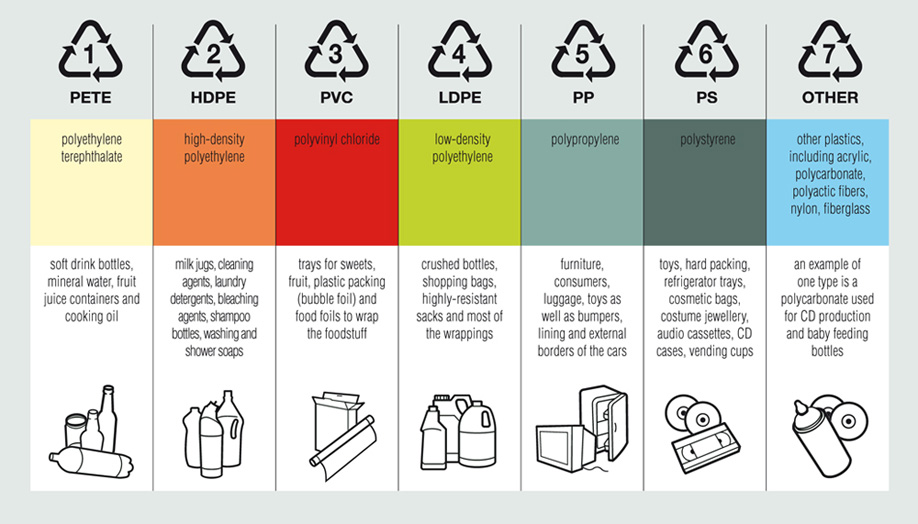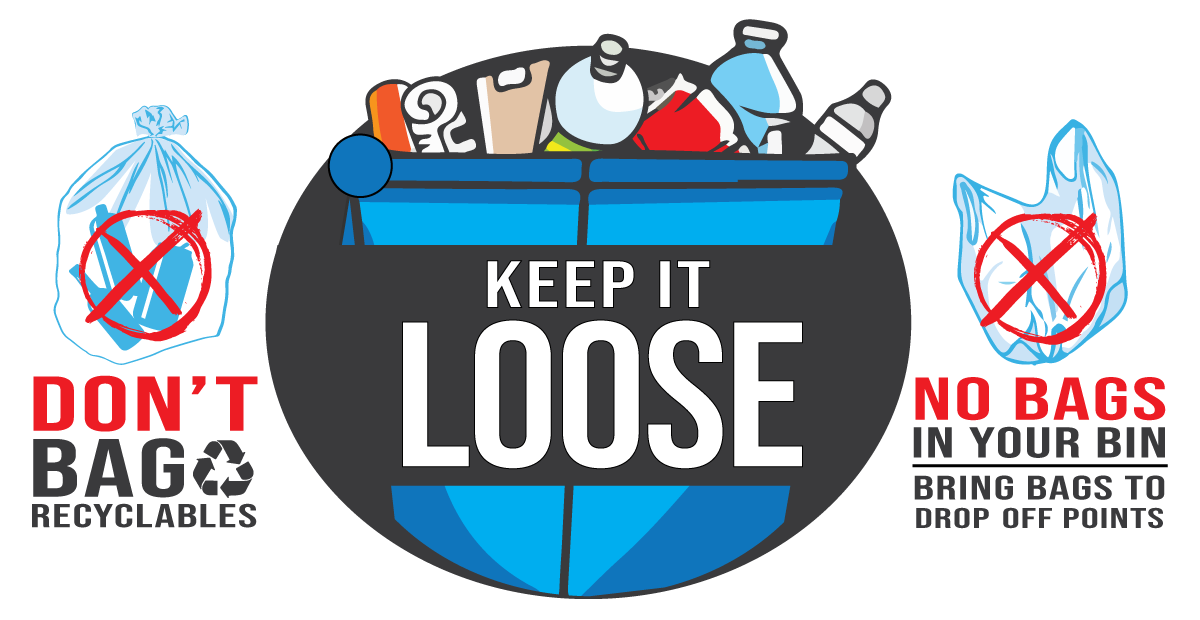Recycling is one of the most accessible ways people can practice sustainability on a daily basis. Everyone uses plastic materials and products at some point whether they are eating out or cleaning out old files in the office. Many assume that anything made out of paper and plastic can is recyclable, but there’s more to recycling than just tossing paper and plastic into a blue bin. In fact, there are rules to recycling that many may be unaware of. The list below contains recyclable materials and non-recyclable materials.
Recyclable Materials
- Plastic Containers and Bottles
Plastic containers & bottles that are dried and cleaned may be tossed in recycling bins. These containers include bottles, tubs, jugs, and jars. Checking the bottom of a container can help one determine the recycling capabilities of the container. A logo from how2recycle.info might be found here that gives instructions and describes the kind of material that is being recycled. However, the circle of arrows doesn’t necessarily mean the item can be recycled. Polychem USA provides seven categories of containers that either may or may not be accepted at recycling facilities in your area.

Image Credit: polystarusa.com
- Cans
Cans containing food, refreshments, and aerosol cans made of tin, aluminum, and steel may be recycled. Any plastic tops for cans must be removed before recycling. Similarly to plastics, make sure the cans are empty and clean before tossing them.
- Paper
Being able to be reused five-seven times, paper is the most common material that is recycled. Paper products like newspapers, copy paper, and magazines are all able to be recycled, however, any wet paper must be put in a composting bin.
- Paperboard and Cardboard
Any cardboard or paperboard used for shipping, food packaging, and storing can be recycled. Cardboard structures must be flattened before being deposited for recycling due to how much space boxes take up. Like plastic containers and canned foods, cardboard boxes delivering food must be cleaned out of any leftover crumbs or liners.
- Cartons
Cartons containing food and drinks can be recycled depending on what local recycling programs permit. Regulations for recycling cartons vary depending on which county, city, and state one resides. Be sure to check local guidelines before recycling any cartons.
- Glass
Like cartons, recycling glass depends on local recycling regulations. Communities that permit recycling glass provide pick up services and drop off locations for glass containers and bottles.
Unacceptable Materials
Here is where many will be surprised with what isn’t allowed in regards to recycling. Most things that are made out of plastic, paper, cardboard, or glass, are capable of being recycled. While those materials may be recycled, there are certain exceptions that must be noted.
- Recyclable Materials In Plastic Bags
Even though plastic bags are made out of plastic, plastic bags are encouraged to be reused by whoever possesses them. Plastic bags aren’t like plastic containers in the sense that they are made up of plastic film. Grocery stores like Food Lion and Publix provide containers specifically for plastic bags to be recycled.

Image Courtesy: City of Sonoma
- Plastic Film and Wraps
Plastic film and wraps fall into the same category as plastic bags. Examples of everyday plastic film and wraps include bubble wrap, saran wrap, freezer bags, and sandwich bags.
- Flexible Packaging
Packages made out of a mix of cardboard and plastic cannot be recycled due to the variety of materials making up the package. Some of these packages include cardboard packages with plastic or any juice packages.
- Disposable Cups
Disposable cups appear to be recyclable since they have paper or cardboard, but the wax that these cups contain to regulate heat make the cup unable to be recycled properly. Instead, those using these kinds of cups should be encouraged to invest in a reusable bottle or thermos.
- Polystyrene Foam and Plastic
Foam and plastic containers made out of polystyrene are not able to be recycled because of the nonrenewable materials used to create these containers. Packing peanuts are made out of the same materials, however, some shipping companies will reuse them or create packing peanuts that dissolve when wet.
Other Unacceptable Materials
Besides the different kinds of plastics and foams that aren’t able to be recycled, noting other kinds of materials like medical waste and dirty diapers is important for the safety of material recovery facility (MRF) workers. Any tangled materials, random household items, and garage scrap could damage equipment used at MRF facilities creating an unsafe work environment.
Where To Learn More
After reading this article, one should realize there is more to recycling than just putting paper products in a blue container. Different containers and materials have their own set of rules and regulations for recycling. Disregarding these rules would not only be a waste of time, but the recycling process for accepted materials would be hindered. To learn more about recycling properly, check out how2recycle.info today!

